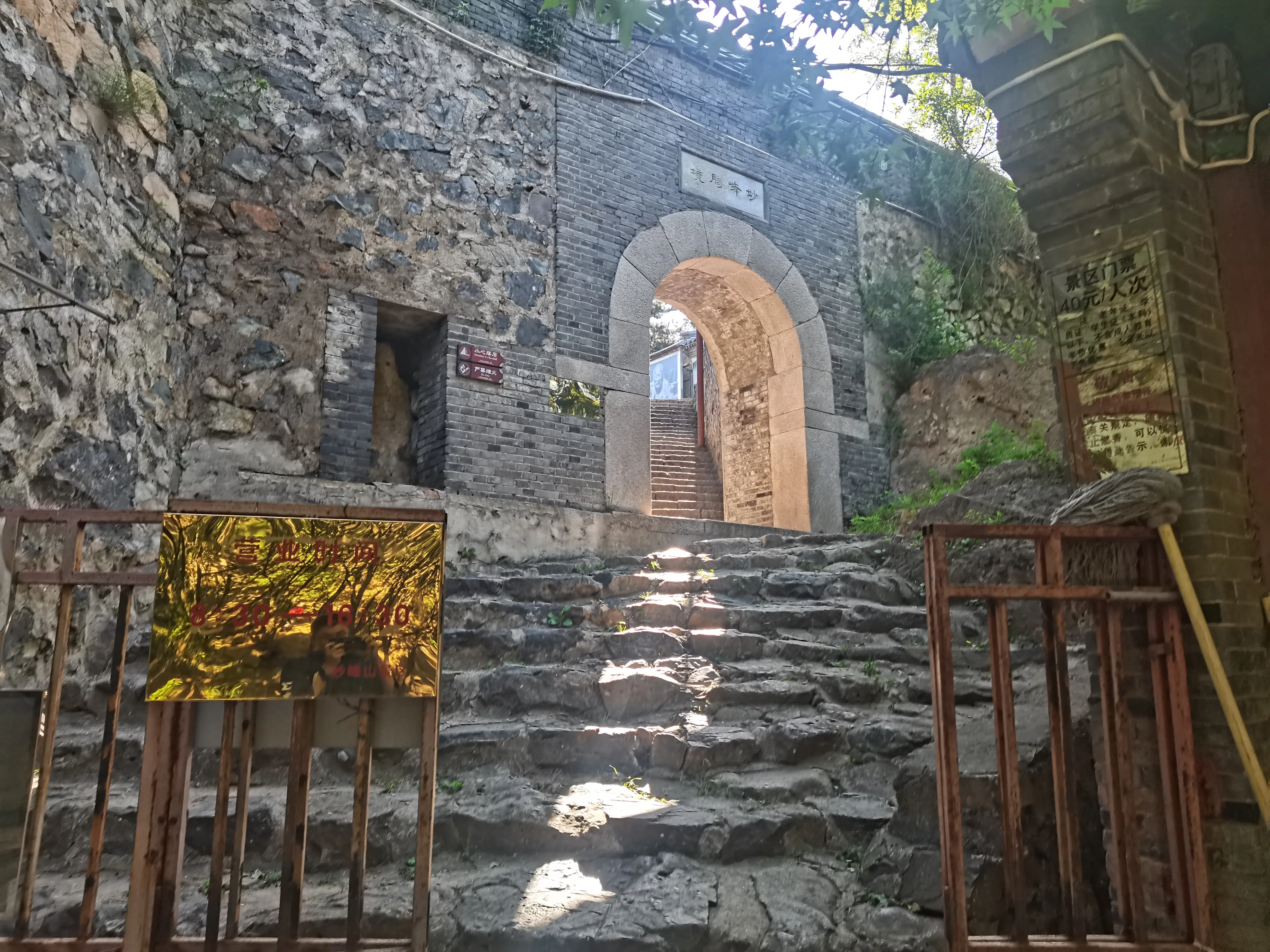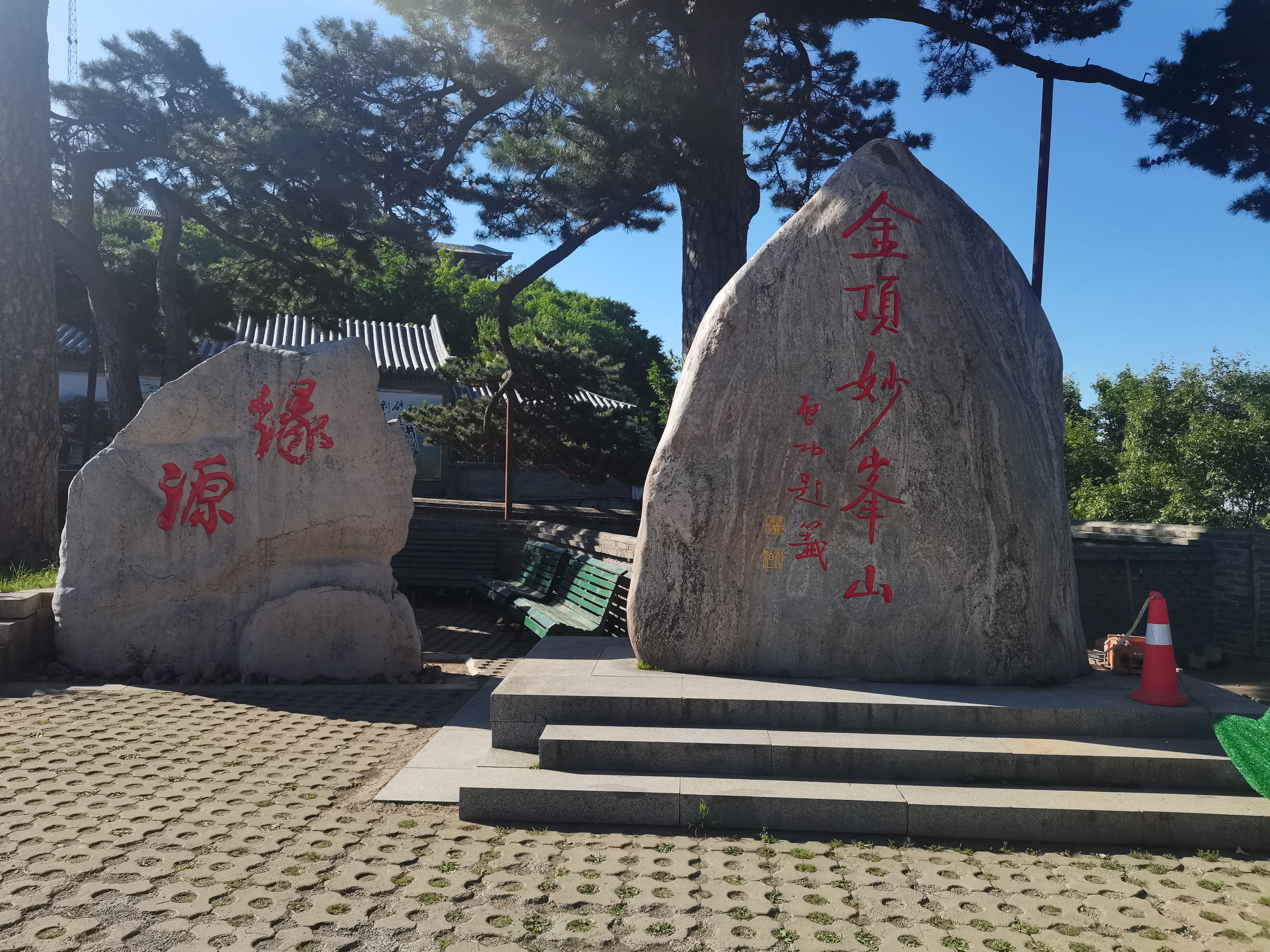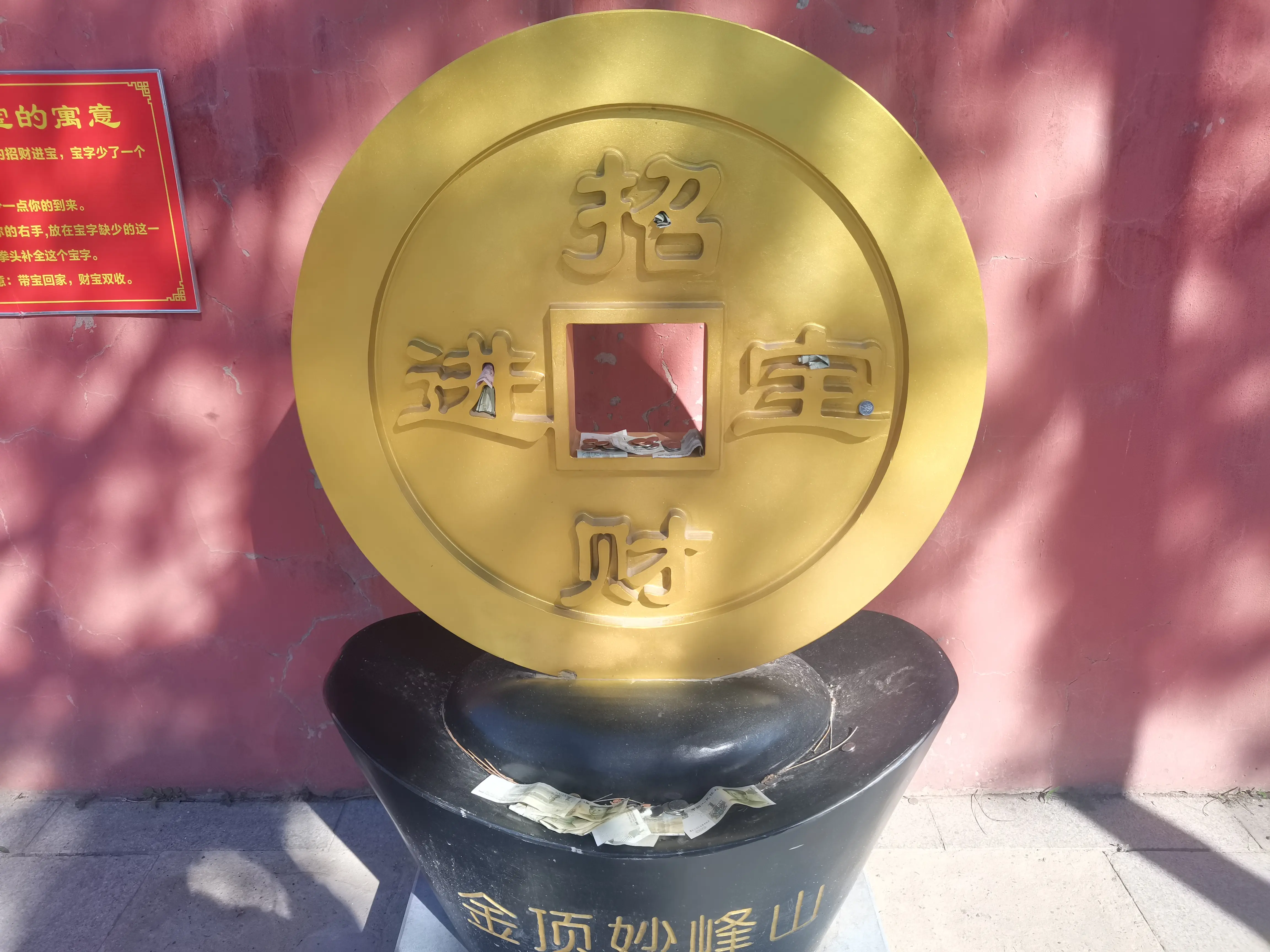Research Note 3: Mountains and Red Roses
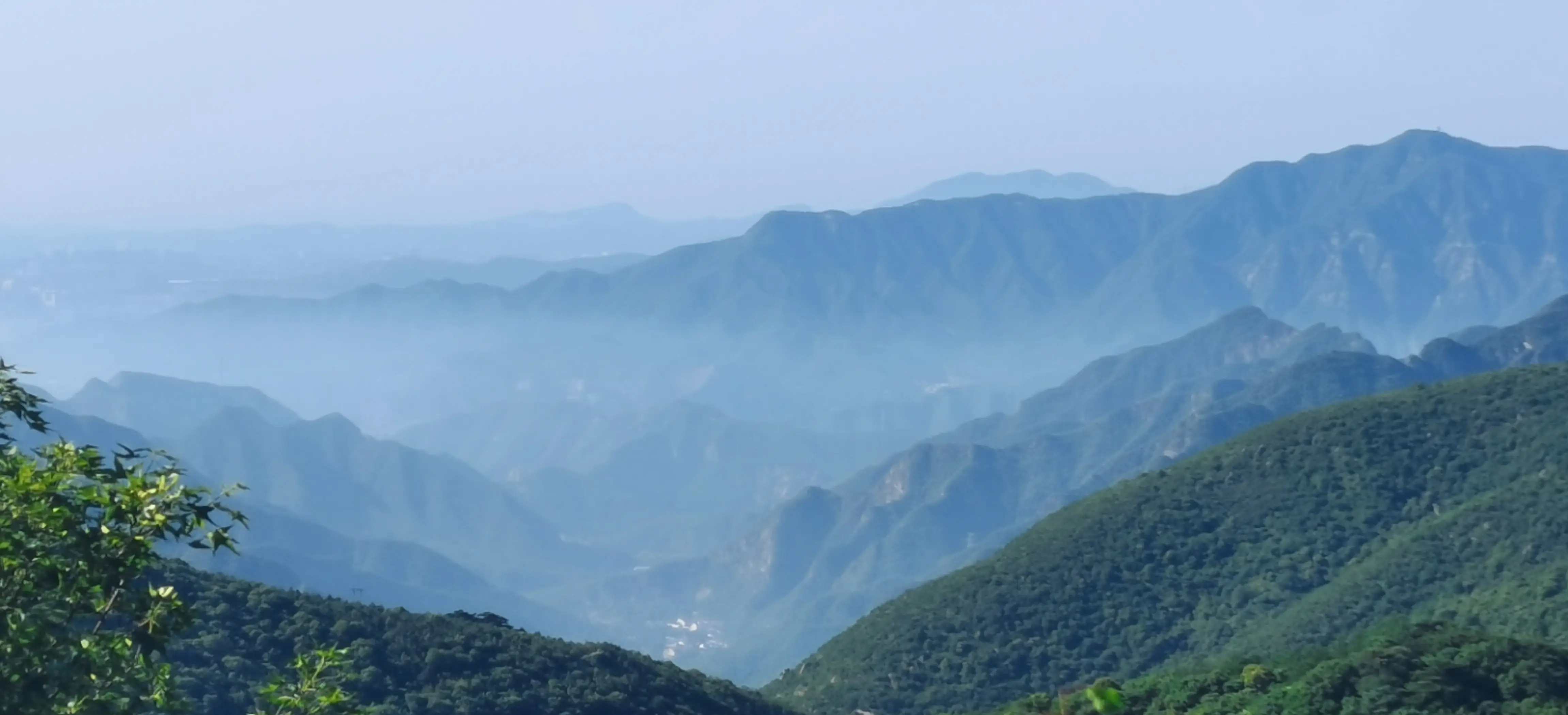
Beijing’s popular tourist spots are often located in the east and south—head east to Qinhuangdao or travel south to the Tianjin seaside. The southeast, near the sea, is a favorite among visitors.
In the northwest, it’s a paradise for hiking and mountain adventures. For example, heading north to Miyun Research Note 2: Miyun Wild Great Wall. This time, the destination for our field research is the Mentougou District on the western side of Beijing.
Mountains and Hikers
Beijing Three Peaks
This field research takes us to Jianjian Village in Mentougou District, situated at the foot of Miaofeng Mountain. The main peak of Miaofeng Mountain stands at an elevation of 1291 meters, making it the closest peak over a thousand meters to Beijing’s urban area1.
Along the way, almost every 20 minutes, a backpacker can be seen jogging down the mountain, waving trekking poles. Upon inquiry, we learned that this is the famous “Beijing Three Peaks” hiking route.
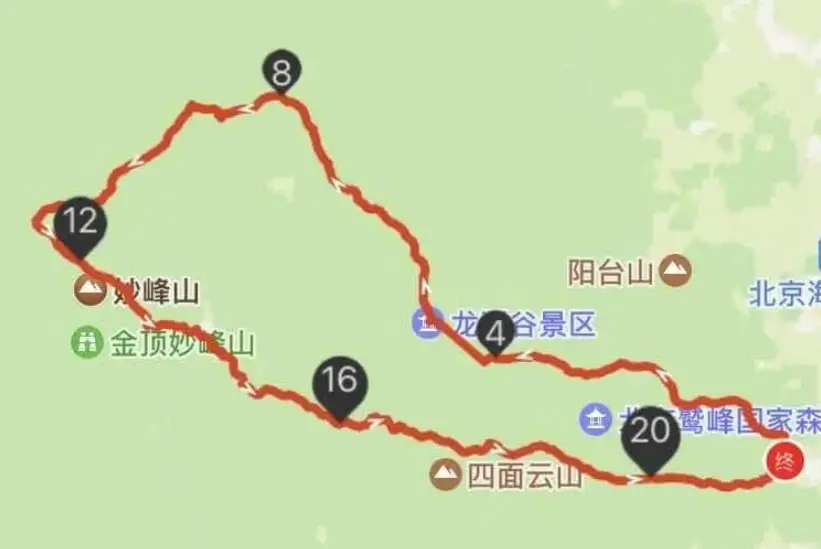
In Beijing, this kind of hiking business model is quite common, and many friends in my social circle have participated. If you explore the mountains in the suburbs of Beijing, you’ll often see red ribbons with writing fluttering from the trees—these are usually route markers and advertisements from hiking groups.
Miaofeng Mountain
Due to time constraints, I only managed to climb the main peak of Miaofeng Mountain. A brief map is provided below:
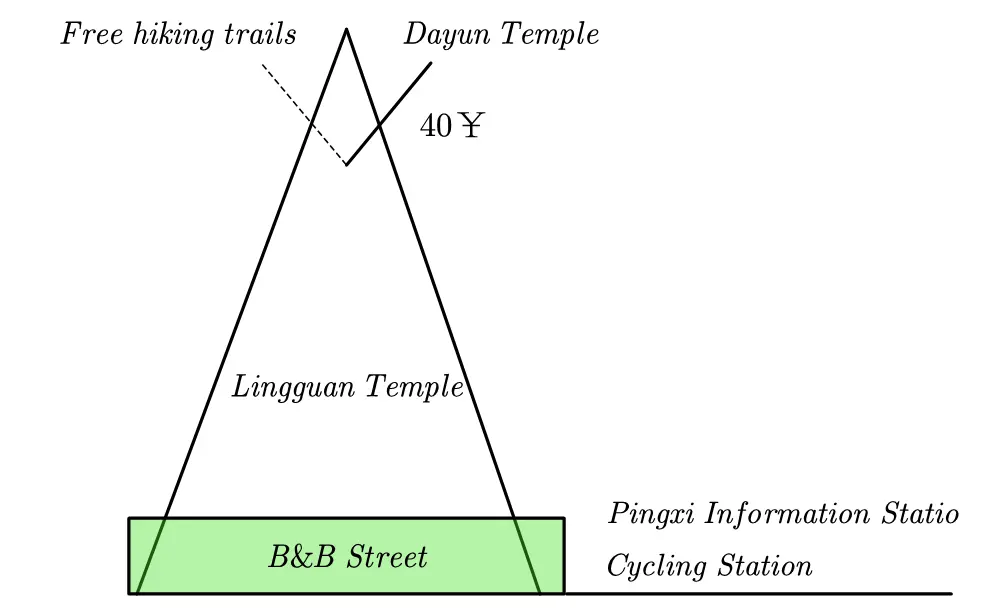
Pingxi Intelligence Station
During the War of Resistance against Japan, Jianjian Village served as a liaison station for joint intelligence with the Northeast Anti-Japanese forces. The Pingxi Intelligence Station is a red education-themed museum dedicated to this history. You can bike up Miaofeng Mountain along the road, and at the foot of the mountain, there’s a cycling station with a café.
Dayun Temple
If you choose to take the mountain path (hiking route), the trail up the mountain is hidden among the streets and alleys. Pay attention to the signs and the backpackers coming down the mountain.
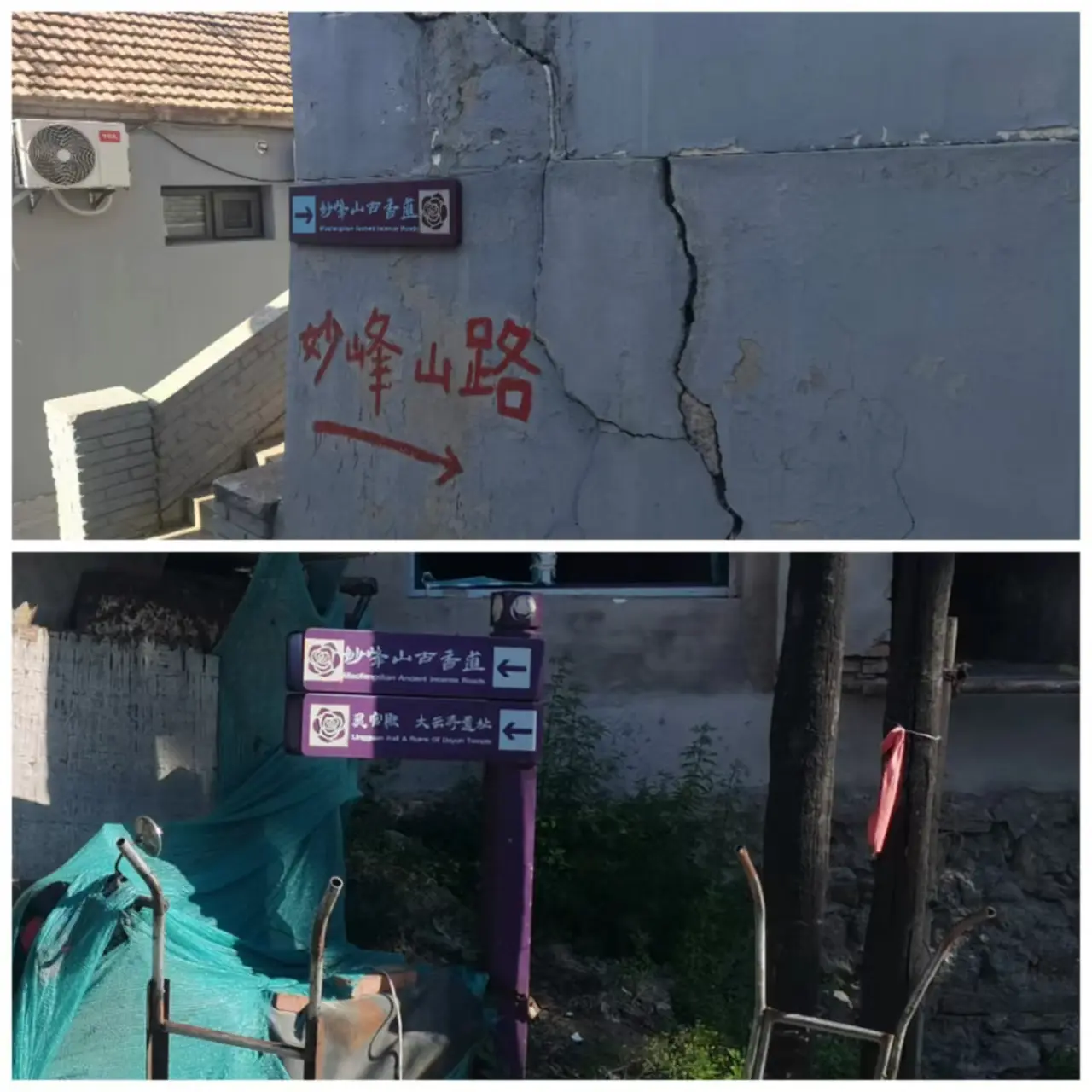
It takes about 40 minutes from the foot of the mountain to the top. On the mountainside is the Lingguan Temple (free).
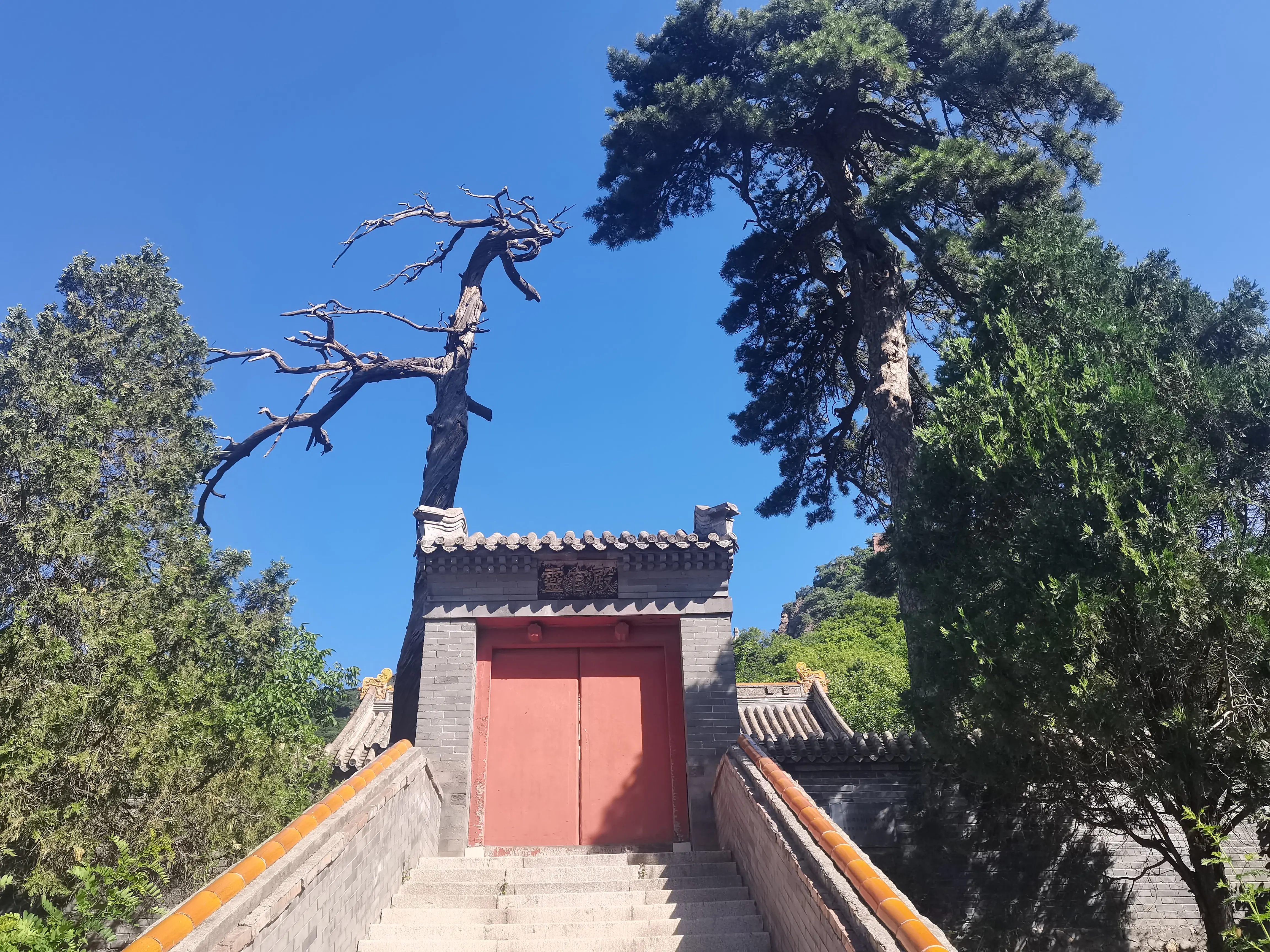
The summit is Dayun Temple (admission fee required). These temples are all privately managed.
Dayun Temple is nominally open from 8:30 to 17:00. The entrance fee is 40 ¥ per person. Because the ticket seller arrived late and left early, I started climbing at 7:20 am and reached the summit gate at 7:55 am. The ticket seller had not arrived yet, but the gate was open2, so I went in directly.
Inside, there are four halls: the Lower Niangniang Temple, the Temple of the God of Wealth, and one temple that is currently under renovation.
The Chinese characters “招财进宝” mean to attract wealth and treasure. Here, the Chinese character “宝” is missing a part “、”, and they promote it as “少了一点你,” implying that the part that is missing is you.
Just up another long flight of stairs is the summit, where you’ll find Yuhuang Temple. When I entered Yuhuang Temple, the temple gate had just opened. The caretaker who opened the gate expressed surprise that someone had come so early.
On June 16, 2024, I was the first person to enter Yuhuang Temple on Miaofeng Mountain. It was me!
From the top of Yuhuang Temple, the view is quite stunning. The early bird 😤 gets to enjoy the scenery from up high for free!
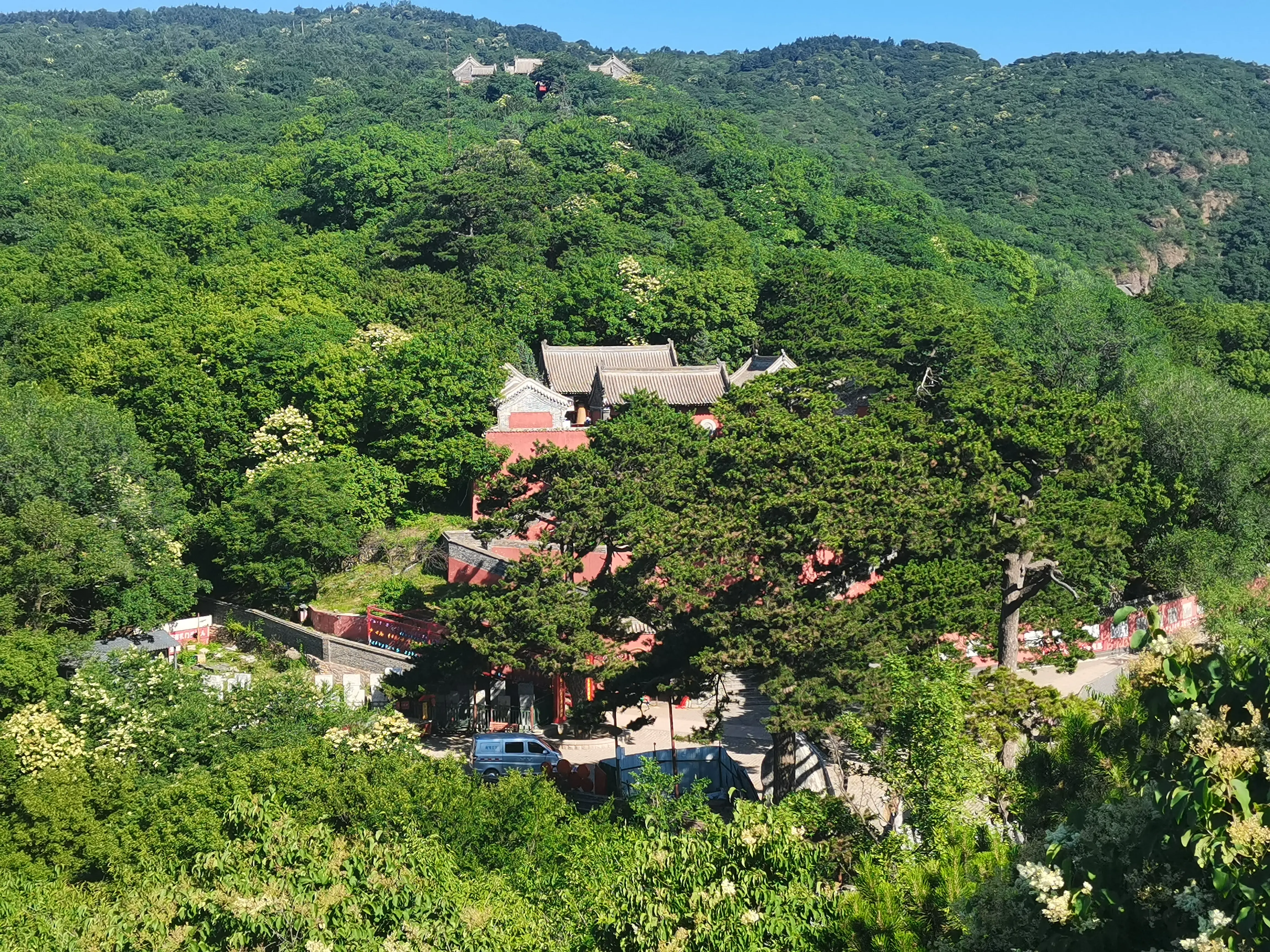
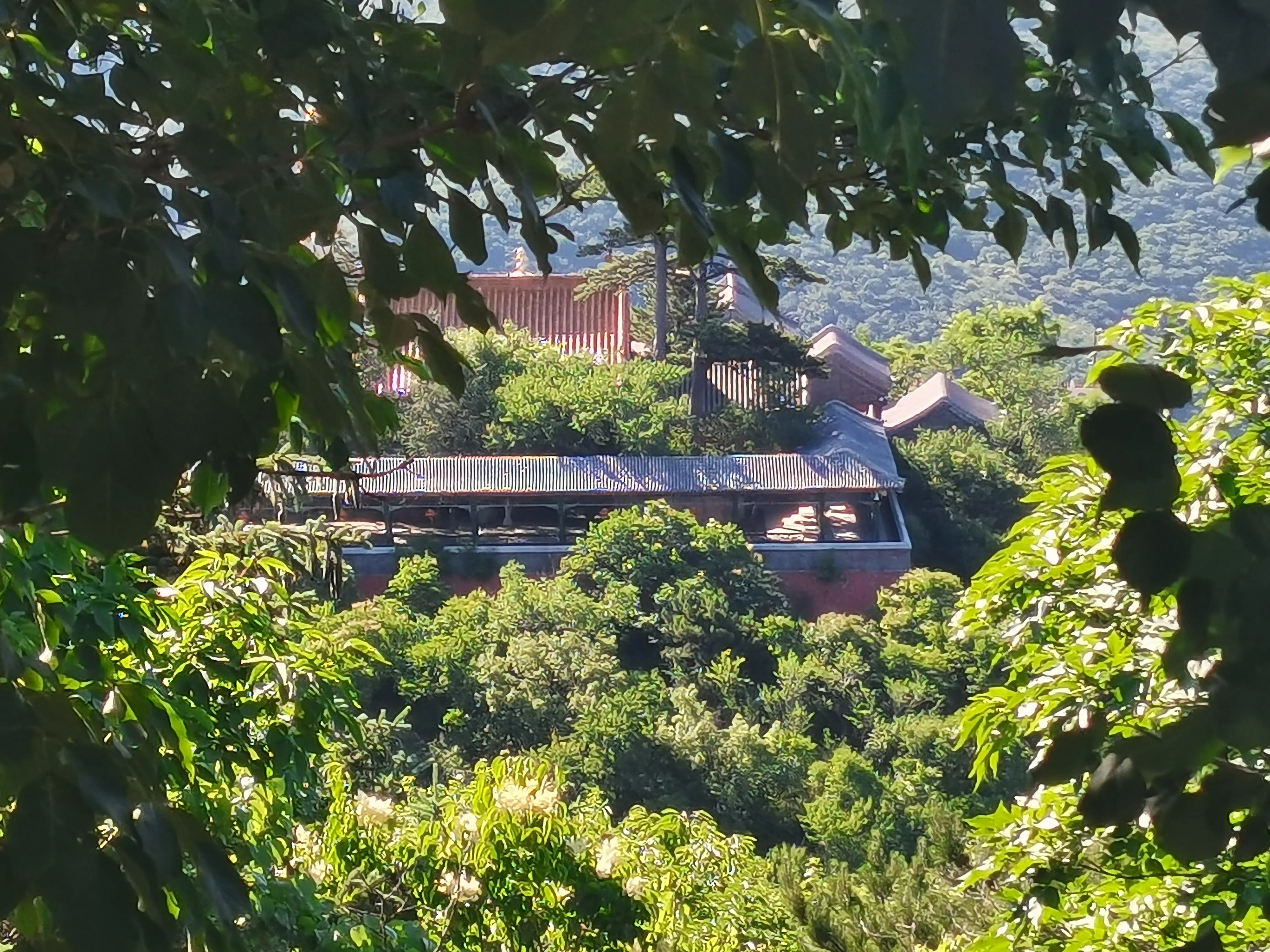
Mountains and Red Roses
Not far from Yingtao Gou, there is another local specialty in red — the red rose.
Only this place can grow it, also known as Alpine Rose or Miaofeng Mountain Rose.
Jianjian Village faces north and south, forming a basin shape, with good conditions for heat drainage. During the summer solstice, it receives no fewer than 13 hours of sunlight. The flowering period has little rain, abundant sunshine, which is conducive to the formation and accumulation of aromatic oil. The soil has a thick humus layer, slightly acidic, with high content of trace elements such as iron, manganese, copper, and zinc. The unique natural conditions produce roses with distinctive fragrance and quality.
Reference from Specialty China.
The restaurant owner said that since her grandmother’s generation, red roses have been a specialty here. They offer rose cakes, rose wine, rose sauce, and rose perfume.
Rose scrambled eggs are indeed delicious 😍, while rose cakes lack distinctive flavor, primarily aromatic.
Hawthorn and red fruit 3 are also local specialty produce, and both are red

